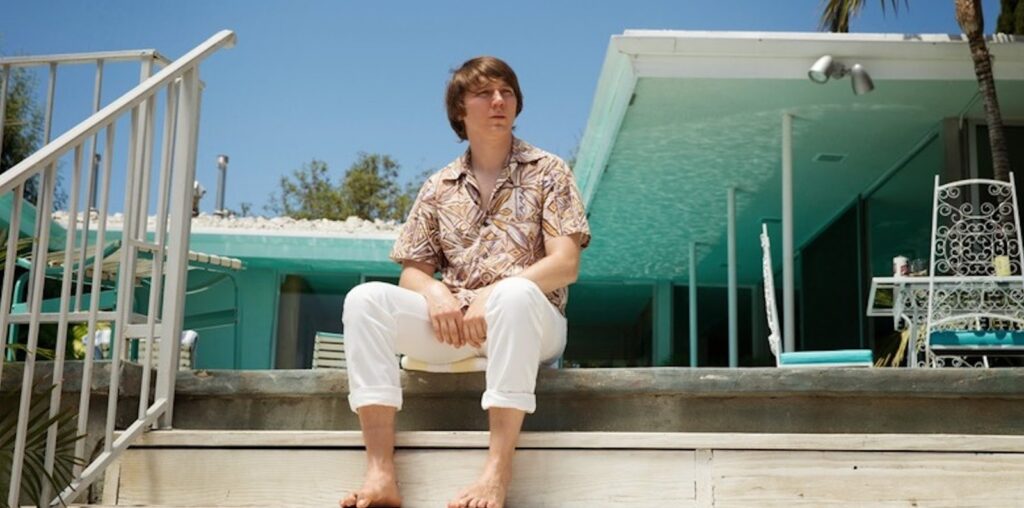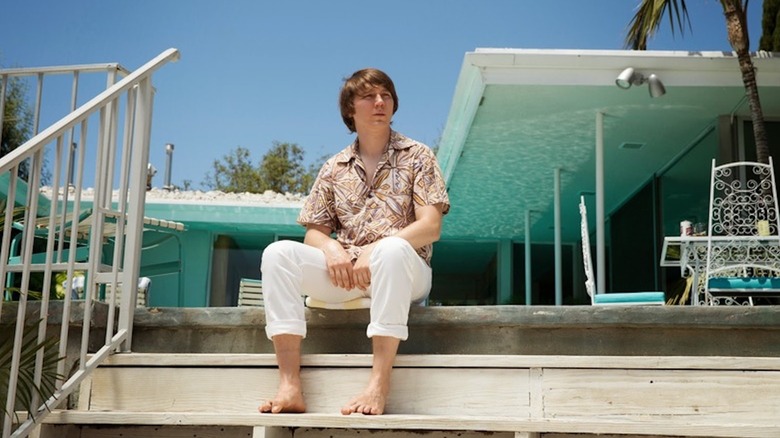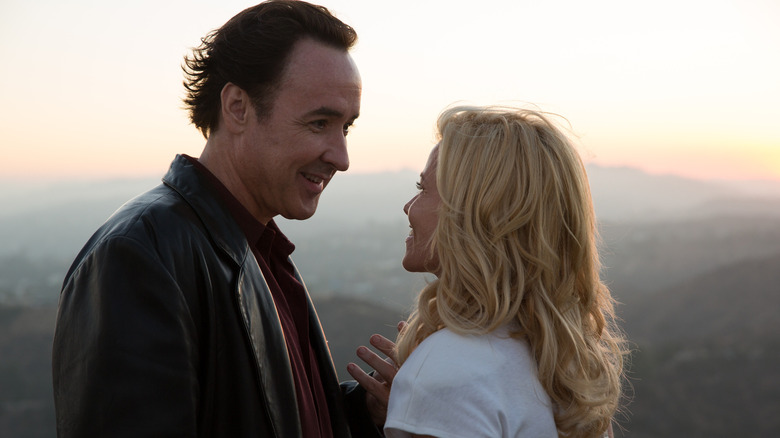The creative mind is a finicky, fragile thing. Sometimes inspiration floods the senses, prompting a flurry of productivity — some of which, if you’re lucky, is actually usable if not good! At other times, it’s a struggle to write so much as a word, or draw merely a line without everything feeling totally wrong. This is especially frustrating if/when you realize your mood has no impact on your process. You can be downright chipper, and not be able to produce anything of merit. Meanwhile, a low period can provoke great art if you can work through whatever it is that’s dragging you down.
And then there is anxiety, the most debilitating force in the creative life. When you find yourself dealing with panic attacks that come on for seemingly no reason at all, you’re constantly on guard for the next one, praying like hell that it won’t hit at a public event or when you’re on deadline. It’s a beast, and I don’t think I’ve ever seen it dealt with more accurately than in Bill Pohlad’s “Love & Mercy,” a moving portrait of The Beach Boys co-founder and musical genius Brian Wilson. The musician’s battle with anxiety in the early going of the movie is particularly effective, as we see how the mental tortures that afflicted the brilliant young Wilson (Paul Dano) led in part to his difficult adulthood (embodied by John Cusack).
The difference between the two Brians is striking, as are the faint echoes of the promising youth that occasionally break through the medicated surface of the older man. How did Pohlad, Dano, and Cusack manage to strike such a tricky balance, one that feels spiritually right without ever coming off as imitation?
Making Love & Mercy was like shooting two different films
The key to the fuzzy linkage between the young and old Brians was Pohlad’s insistence that they not meet until they were finished shooting. As the filmmaker told Film Journal International, “I kind of went against logic and said, ‘No, we’re not going to coordinate them. They are going to find their own Brian Wilson.’ They never even met until, I think, one of the last days of Paul’s shooting” (akin to how Johnny Depp and Christian Bale worked on Michael Mann’s “Public Enemies”).
Dano concurred in an interview with AwardsDaily: “It was sort of like two separate films being made almost,” he said. “Bill [Pohlad] suggested we don’t collaborate which showed great trust in both of us.”
One big difference between the two performances came in the research stage. While Dano studied Wilson’s music and his songwriting process, Cusack spent actual time with the man he was playing (which makes sense given that he was playing the olderr version). Pohlad then weaved these “two separate films” together, segueing back and forth between timelines to give viewers an understanding of Brian Wilson in full. This is what makes “Love & Mercy” so special. It’s a mesmerizing experience that doesn’t play like your standard issue biopic. If only more filmmakers felt emboldened to break with this shopworn template like Pohlad, and to keep their actors separate if it serves the creative aims of the film.



